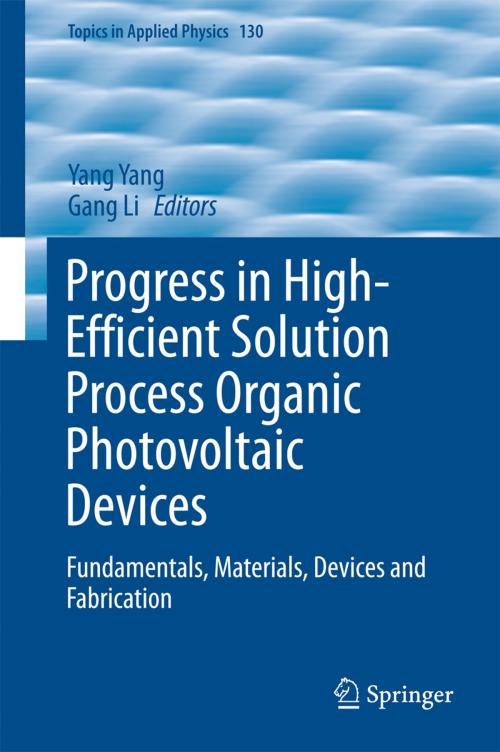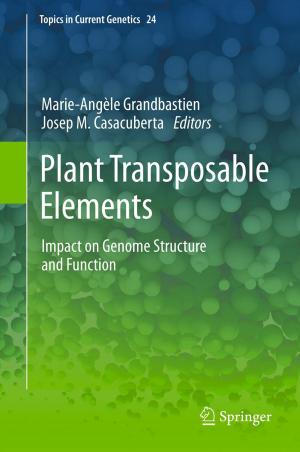Progress in High-Efficient Solution Process Organic Photovoltaic Devices
Fundamentals, Materials, Devices and Fabrication
Nonfiction, Science & Nature, Technology, Material Science, Science, Physics, Energy| Author: | ISBN: | 9783662455098 | |
| Publisher: | Springer Berlin Heidelberg | Publication: | February 17, 2015 |
| Imprint: | Springer | Language: | English |
| Author: | |
| ISBN: | 9783662455098 |
| Publisher: | Springer Berlin Heidelberg |
| Publication: | February 17, 2015 |
| Imprint: | Springer |
| Language: | English |
This book presents an important technique to process organic photovoltaic devices. The basics, materials aspects and manufacturing of photovoltaic devices with solution processing are explained. Solution processable organic solar cells - polymer or solution processable small molecules - have the potential to significantly reduce the costs for solar electricity and energy payback time due to the low material costs for the cells, low cost and fast fabrication processes (ambient, roll-to-roll), high material utilization etc. In addition, organic photovoltaics (OPV) also provides attractive properties like flexibility, colorful displays and transparency which could open new market opportunities. The material and device innovations lead to improved efficiency by 8% for organic photovoltaic solar cells, compared to 4% in 2005. Both academic and industry research have significant interest in the development of this technology. This book gives an overview of the booming technology, focusing on the solution process for organic solar cells and provides a state-of-the-art report of the latest developments. World class experts cover fundamental, materials, devices and manufacturing technology of OPV technology.
This book presents an important technique to process organic photovoltaic devices. The basics, materials aspects and manufacturing of photovoltaic devices with solution processing are explained. Solution processable organic solar cells - polymer or solution processable small molecules - have the potential to significantly reduce the costs for solar electricity and energy payback time due to the low material costs for the cells, low cost and fast fabrication processes (ambient, roll-to-roll), high material utilization etc. In addition, organic photovoltaics (OPV) also provides attractive properties like flexibility, colorful displays and transparency which could open new market opportunities. The material and device innovations lead to improved efficiency by 8% for organic photovoltaic solar cells, compared to 4% in 2005. Both academic and industry research have significant interest in the development of this technology. This book gives an overview of the booming technology, focusing on the solution process for organic solar cells and provides a state-of-the-art report of the latest developments. World class experts cover fundamental, materials, devices and manufacturing technology of OPV technology.















